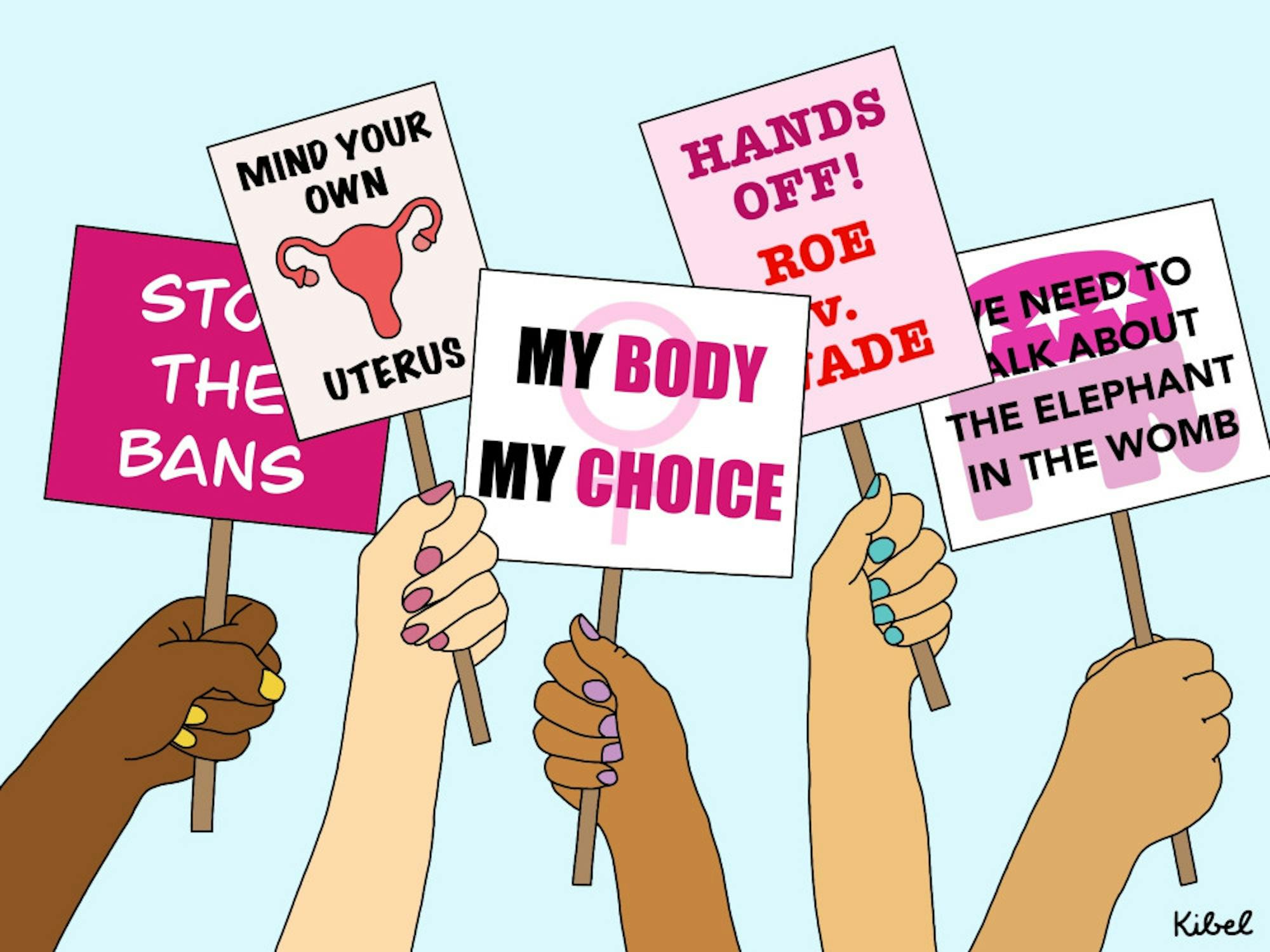Roe v. Wade,the landmark Supreme Court case that has served as the primary protection for abortion rights since the 1970s, will likely be overturned this summer. Oral arguments were heard last December for the Mississippi case, Dobbs v. Jackson Women’s Health Organization, which asks the Supreme Court to re-evaluate Roe v. Wade. With the current 6–3 conservative majority on the Supreme Court, a decision to overturn — or, at the very least, limit — Roe is expected.
The debate over abortion is age-old. Evidence indicates that lack of access to abortions is harmful. A longitudinal study done over 10 years including around 1,000 women who either had an abortion or were turned away from an abortion clinic found that women who got abortions had better economic, mental and physical health. Meanwhile, there is little reliable evidence to show that abortions are harmful to those who choose to have them. Though there continues to be much disagreement, Pew Research Center found that a majority of Americans — 59% — believe that abortion should be legal in all or most cases. Ultimately, however, a person’s decision to carry a child in their body for nine months should be no one’s choice but their own.
Once Roe is overturned, the right to abortion will be solely in the hands of the states. States with Republican legislatures are already gearing up to decimate abortion access. Laws to limit or ban abortions in Florida and Oklahoma have recently made the news, as well as the Texas law which essentially placed a bounty on those seeking — or aiding and abetting — abortions. Twenty-two states currently have laws that would take effect immediately when Roeis overturned, 18 of which place a full or near-total ban on abortion, meaning that the only exception would be made if the mother’s life were at risk.
Additionally, without the protection of Roe v. Wade, abortion rights across the country are in jeopardy. There have been over 82 anti-abortion bills introduced across 30 states already this year. Evidently, every election that threatens to flip a state legislature from blue to red also threatens the right to abortion for the people in that state. It is also possible that a Republican-controlled White House and Congress could push through a national abortion ban, though it is less likely that the Supreme Court would allow that level of overreach.
It is also increasingly clear that not all people seeking abortions are equally affected by these laws. Out-of-state abortions are an option that exist only to people of means — most can’t afford the high price tag of travel on top of the cost of the abortion itself. This means that these bans have a disproportionate effect on those from low-income communities, especially people of color who are more likely to be low-income due to the economic consequences of systemic oppression. These restrictions go against the fundamental values of universal rights to reproductive autonomy and access to reproductive health care.
Some states, however, are enshrining the right to abortions in state legislatures. Lead among them are California and Oregon which have also passed laws reducing out-of-pocket costs for abortions. California already requires insurance companies to cover the costs of abortions, and the state recently passed a law eliminating co-pays and deductibles for these procedures as well. Oregon has put aside $15 million to help people from other states travel there to get abortions. Washington has enacted laws which aim to counteract the rhetoric of Texas’s infamous abortion restrictions, protecting people from legal action as a result of involvement in abortions. These blue states, along with 13 others, are working to protect the right to abortion and become safe havens for abortion-seekers from states where it is illegal.
As I wrote in an earlier article for the Daily, the place where we can make a difference for the lives of LGBTQ teens in the face of a tide of anti-LGBTQ state legislature is at the state level. The same goes for reproductive rights. Some of the more competitive legislatures include those in Minnesota, Michigan and Arizona. In this midterm year, focusing donations and get-out-the-vote campaigns on state-level elections can make all the difference. If you have the means, donate to abortion funds and groups fighting for reproductive rights across the country — particularly in states like Texas where people are already suffering from bans. It is crucial that we fight this attack on the constitutional rights of bodily autonomy and ensure that everyone has safe and affordable access to abortion.






